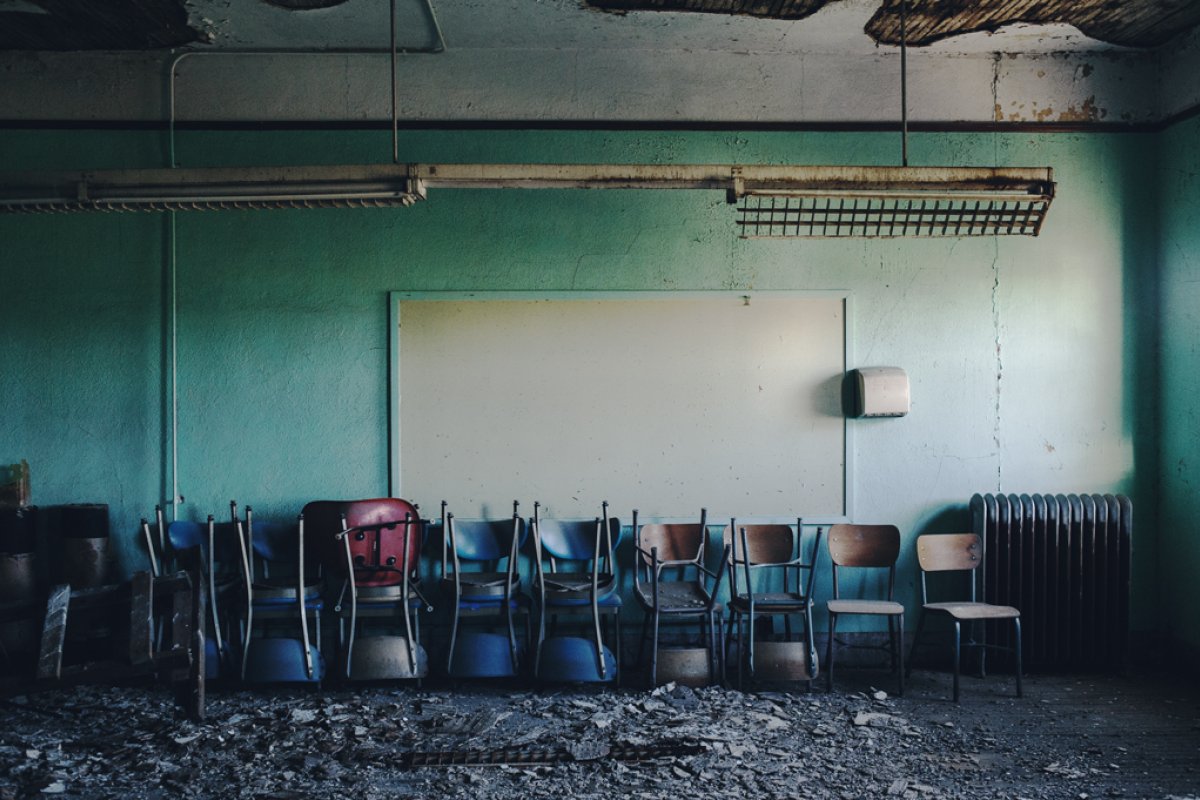
Thoughts and Prayers
As inhabitants of the only country in the world where school shootings are routine, the American faithful must not pray for serenity, but for courage.
When there is a mass shooting in the United States, public discourse follows a familiar pattern.
That’s an upsetting fact. Mass shootings should not happen frequently enough for us to have predictable responses. President Obama bemoaned this reality in 2015, saying, “Somehow this has become routine. The reporting is routine. My response here at this podium ends up being routine. The conversation in the aftermath of it. We've become numb to this.”
The language of “thoughts and prayers” plays an increasingly contentious role in this morbid routine. Leaders offer their condolences and prayers the families of the victims, critics on social media retort that thoughts and prayers are insufficient or hypocritical when the one offering them opposes policies to address the problem, while others insist that such retorts politicize a tragedy or ignore the human dimension of the suffering. As this all-too-familiar routine plays out in the wake of the shooting in Uvalde, Texas, it is worth taking time to analyze the debate over “thoughts and prayers,” how little this debate has to do with actual thinking and praying, and what it shows us about the nature of moral reflection.
You know the drill. After a mass shooting, elected officials will issue public statements extending prayers and sympathy to those immediately affected. These statements are ruthlessly mocked and memed, especially when the politician has voted against legislation that would significantly reduce gun violence. Coming from lawmakers whose policies help make school shootings overwhelmingly more common in the United States than in comparable nations, an offer of “thoughts and prayers” is not just hollow but despicable.
Some political leaders who offer prayers are disingenuous, focusing more on their public persona than on grieving people. More, perhaps, are on a sort of autopilot, carrying on the “routine” Obama described. But even among those who are sincere in their gestures of compassion, these gestures are inadequate if not accompanied by efforts to prevent future violence. As Bible scholar Marcus Borg writes, "Compassion without justice can mean caring for victims while quietly acquiescing to a system that creates even more victims."
The backlash against “thoughts and prayers” has been met with its own backlash. Writing for The Atlantic, Emma Green argues that the criticism of “thoughts and prayers” unfairly associates religious responses to mass shootings with conservative politics. In these “attacks on prayer,” Green writes, “any invocation of faith is taken as implicit advocacy of right-wing beliefs.” The widespread backlash against “thoughts and prayers,” though correct about the need for action, risks ignoring the fact that victims and their families often desire compassion and prayer, not just policy change. Similarly, in a recent piece for the Wall Street Journal, David Bashevkin writes, “Politicians must present real policy measures that will meaningfully address this crisis, but what’s gained by attacking their use of prayerful language? We don’t need a moratorium on prayer to stop school shootings.”
There is a more profound danger when the backlash against “thoughts and prayers” becomes routinized. As ethicist David Barr observes, “Anger at politicians can be a way of shielding us from confronting the horror of what one human being did to another human being, and that horror isn’t something policies can resolve.” Calls for political action, though necessary, can be as alienating from the realities of suffering as invocations of thoughts and prayers.
The real objection to “thoughts and prayers” is not about thoughts and prayers per se, but about how language characterizes or mischaracterizes an event. When an unpreventable tragedy occurs—an avalanche suddenly demolishing a train, for example—then all that most of us can offer are prayers, sympathy, and perhaps aid for the hurt and grieving. The language of “thoughts and prayers” is appropriate in the wake of tragic events like these. After a mass shooting, however, in a country where 77% of mass shooting perpetrators acquired their guns legally and yet no substantive gun control legislation is being passed, to characterize the shooting as an unpreventable tragedy is deeply deceptive.
Objections to “thoughts and prayers” are not against condolences or against religion, but against treating an event like this as isolated and inevitable. We need to counter-narrate these shootings not as senseless tragedies but as part and parcel of American gun culture.
As is frequently the case, ethical deliberation is not so much about what should be done, but about what sort of situation we find ourselves in. As theologian Stanley Hauerwas writes, “The moral life is therefore not just the life of decision but the life of vision—that is, it involves how we see the world. Such ‘seeing’ does not come from just perceiving ‘facts,’ but rather we must learn how the world is to be properly ‘seen’ or better known.” If someone sees the shooting in Uvalde as an event that does not summon legislators and citizens to greater responsibility, they are misperceiving what happened. Thoughts and prayers are also appropriate, of course, but talking about the shooting in the same way we speak about tragic accidents or self-contained acts of violence perpetuates a misunderstanding of what’s going on.
Only when we perceive events in the right way will we be able to respond in the right way. Only when we talk about events properly and hold others accountable to do the same can our society sustain true mourning and true responsibility.
Thinking and praying can train our moral perception, reorienting our vision to make us more aware of our duties, our failings, and our interdependence. Reinhold Niebuhr’s famous serenity prayer—“God, grant me the serenity to accept the things I cannot change, courage to change the things I can, and wisdom to know the difference”—is applicable to the political sphere. We need wisdom in order to perceive which situations call for grieving and which situations also call for change. When the United States is the only country where school shootings have become routine, we should not pray for serenity, but courage.


